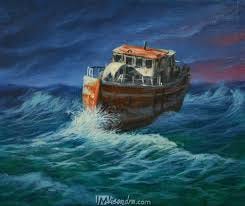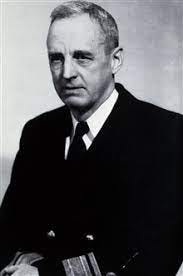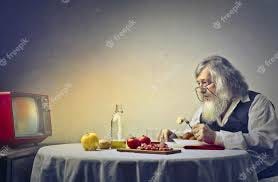GETTING THERE
A Very Short Biography
In the late 1960s, when I was small, I lived in a garden apartment complex in Fairfax County, Virginia, across the river from Washington DC. My next door neighbor, Robert Knox, was a retired rear admiral in the Coast and Geodetic Survey, a branch of the Treasury Department tasked with making maps of coastlines. He had also been a US Army sergeant in World War One. He babysat me when my mother was at work as a nurse in a local hospital and my father was working as a clerk for the Court of Patents and Appeals. He taught me world geography out of a child’s textbook on the subject and also drilled me in weights and measures, methods of oceanic navigation, and basic astronomy. We took field trips to the Smithsonian Institute. We lunched at his private club, The Cosmos Club. Between formal lessons, he showed me his photo albums, which contained pictures he’d taken over the years with a prized German camera he sometimes let me handle, including shots of himself with British Royalty and aboriginal Australians.
I learned from all this that explores still exist, that the world and the heavens are vast yet knowable, and that a life of service to the people is worthy of admiration and even wonder.
My family moved to a town in Minnesota of five hundred people, a village beside a river. My father worked forty miles away, for the 3M corporation in St. Paul, but he wanted to canoe and fish. My mother held a job as an ER nurse in a larger town in Wisconsin, working night shifts and telling tales in the mornings, while I ate breakfast, of bloody car wrecks, house fires, and farming mishaps, often, as she described them, caused by alcohol. We had a general store, a bar, two gas stations, and a public library where I killed time after school with the librarian. She was a feminist. She went by “Ms.” She pushed books on me that I later realized had a liberal flavor. One was “Sounder.” It featured a dog and black people down south, a region I couldn’t imagine and found scary, a place of poverty and sudden violence. She also urged on me alarming volumes about the crises facing our vulnerable planet such as The Population Bomb.
I learned from all this that society is complicated.
My father was the town attorney, a job he volunteered for. One night at a town council meeting he made a speech on the issue of the moment. Our local bar was without a liquor license and the owner, a fellow named Roger, wished to buy one. The beer his bar sold was “3.2 beer,” a weak concoction thought not to be intoxicating. Customers who wanted cocktails had to supply the booze from from their own bottles. My father spoke out against Roger’s application, arguing that it would harm the town, lead to accidents, harm families. The application was denied. A few night later the phone rang in our house, loud as a klaxon, at a late, late hour. I stood outside my parents’ bedroom door, eager to hear the news. Roger had killed himself inside the bar.
From this I found out that voting has consequences.
I learned very little in junior high and high school because I was busy with my social life. I was trying to gain one. I wasn’t popular. The only class that stuck with me was on the “media,” taught by a man who believed that TV lies to us and that we can clarify our view of life by spotting and disregarding these deceptions. One way TV lied was by reaching grand conclusions on the basis of isolated incidents. A particular murder, say, might be blamed on larger, more sweeping forces as a way of passing certain laws that powerful people sought for other reasons. Our class was asked to remember that all TV, including the news, was sponsored by corporations whose intentions were not to help us but to sell us things. I had already heard this from both my grandpas, but it was intriguing to find out they were right, since old folks weren’t given much credit in the late 70s.
From this I learned to listen to my elders, not merely out of respect but to hear truths.
I went to college, to Princeton, a big-deal place. A lot of my classmates were rich, from leading families that knew one another through business, politics, marriage, clubs, and life in certain leisure spots such as “the Hamptons” and “the Vineyard.” I moved among them like a spy, figuring out their angles, their connections. I detected no room for my type in their world, but I knew I might have to compete with them someday, or impress them as bosses, so I paid attention. What they seemed to care most about was appearing relaxed in situations that made others tense such as paying the bill in a restaurant or flunking a test. They often threw up when they drank, and didn’t mind it. They called it “booting.” They also loved to “blow things off.” They blew off classes, essay deadlines, dates, and meetings of our literary magazine, which I always showed up on time for, like a dork.
From this I learned how it feels to be looked down on.
Years later I met these same people at my first job, as an assistant at Vanity Fair magazine, whose editor was a haughty English woman who wore dark glasses to the office. By then I had gone to Oxford on a fellowship and was thought to be one of these superior specimens. I received invitations to parties at vast apartments on Manhattan’s Fifth Avenue. I met some types there. I met Teddy Kennedy, who was very drunk and threw an arm around me on a staircase and ordered the crowd to be silent— successfully — and recited a poem by William Butler Yeats while I stood beside him, snug against his girth. It felt like a form of fame but it was brief, and when he let go of me I was on my own again, a kid in a black Gap sweatshirt, under-dressed. Peter O’Toole, the great actor, was in the room, and Walter Cronkite, the famous anchorman, and several other period luminaries, all of whom I realized would die someday. They didn’t look sick, exactly, just very human, perspiring in places that gods don’t sweat — on the backs of their hands, on the sides of their pale necks.
I learned at those parties that the great ones can’t protect us, because they have their secrets and terrors too.
I was just twenty-four, my life had barely started, but these are the little lessons that stayed with me, a map of the world I keep folded in my heart.









The Princeton comments resonate with me. Just down the road I attended an old distinguished all-boys boarding school. A full scholarship paid my way. I was a ragamuffin kid from a family that had no connections with other students. Most of the boys there resembled the photos that accompany your sketch. They wore fabulous shirts of pastel colors like the Gatsby’s closet in the movie scene with Redford and Farrow. They looked down on anyone who wasn’t like them. Or dressed like them. Or summered with them.
I remember looking at my roommate’s closet and comparing it with mine: containing four pairs of K-Mart kaiki slacks, five blue button down shirts, two white button down shirts, one pair of WeeJun loafers, and my late uncle’s Jermyn-street tweed blazer, which I inherited and while threadbare, fit me like a glove. I didn’t have a suit for Sunday chapel— a requirement—so I wore a sunny blue blazer and dark gray slacks. In the New Jersey gloom nobody spotted me. I can’t imagine how many lunches my father took to work to pay for acquiring all the rest of that clothing at once. “No thanks, I’m eating at my desk today—I’ve fallen behind.” He brought mayonnaise sandwiches on white and a thermos of tea.
My roommate always forgot to put out his laundry. When he ran out of clean shirts he walked across the street and purchased new shirts. By Thanksgiving there must have been fifty shirts of all colors and styles at the closet’s bottom. Each worn once or twice.
We had classes six days each week. Since I had five blue shirts I had to wash, hang dry and borrow my housemaster’s wife’s iron on Thursdays so the shirt would be dry enough to press on Friday night. To wear Saturday. But I learned how to press a shirt.
When I went home one weekend per term, one of the masters (fabulously wealthy) would put a $10 bill in my mailbox for the return train fare. An anonymous act of generosity.
[To avoid the reader misconstruing all of this: my experiences there did not incite class hatred, turn me into a Communist or a Socialist. It made me want to resemble them. Not become them but resemble them. In fact I’m immeasurably grateful for the free education. And the privileges that came with it.in fact I sent my sons there—paid the full freight]
So several decades down the road I had the pleasure of launching unrequited takeovers of their fathers’ companies, their fathers having become too lazy, jaded, complacent and sloppy to manage them properly. I don’t think they even recognized my face in the final board meeting.
Isn’t America a great country?
I was at Rolling Stone roughly at the same time. We hung out at Jean Lafitte on 56th near 6th. Peter O’Toole used to come in, and walk around in his socks peering at the paintings on the walls.
This is a great piece.